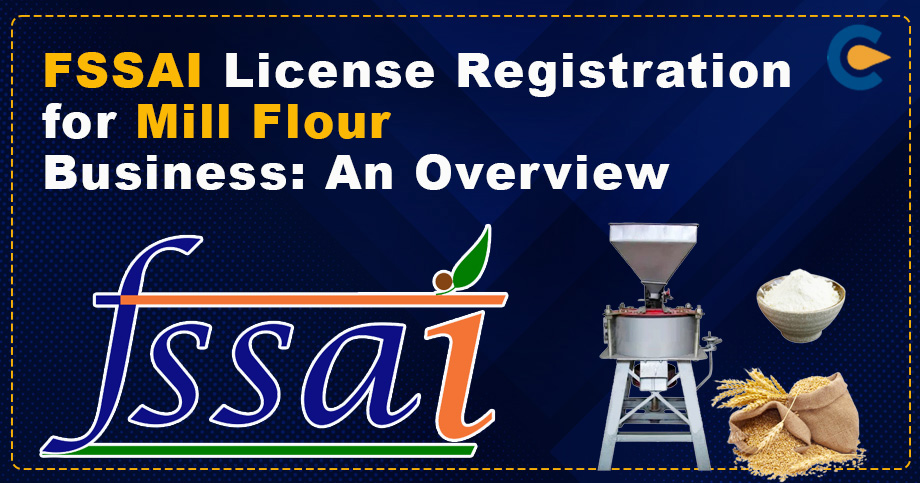Any country must prioritize food safety, and India is no different. The regulatory organization in charge of making sure that the food items in India are safe and suitable for human consumption is the Food Safety and Standards Authority of India (FSSAI). The Food Safety and Standards Authority of India (FSSAI) is an autonomous body established under the Ministry of Health & Family Welfare, Government of India. The primary role of FSSAI is to regulate and supervise the food industry in India to ensure that food products are safe and of good quality for consumption. FSSAI operates at two levels: state and central. Both levels have different roles and responsibilities, but they work together to ensure the safety and quality of food products in India.
What is the Meaning of FSSAI State and FSSAI Central License?
Let’s discuss the meaning of FSSAI State and FSSAI Central License:
- FSSAI State License
The state-level FSSAI office issues the FSSAI State License, which is required for food business operators (FBOs) with an annual turnover between 12 lakhs to 20 crores. The license can be renewed when it expires and has a validity of 1 to 5 years. An online application can be made for an FSSAI State License, and the procedure is quite simple. Small-scale food manufacturers, transporters, storage units, retailers and food service providers are food business operators requiring a FSSAI State License.
For obtaining an FSSAI State License, the applicant must possess a current PAN Card, GST registration and a current FSSAI registration number along with the other documents. The applicant must also include information on the food business operations, such as the kinds of foods being produced, processed or stored as well as the address of the locations where the food company is being run.
- FSSAI Central License
The Central level FSSAI office issues the FSSAI Central License, which is required for food business operators (FBOs) with an annual turnover of more than 20 crores. The license can be renewed when it expires and has a validity of 1 to 5 years. When applying for FSSAI Central license, there are more steps involved than in the procedure of a State License.
Large-scale food manufacturers, transporters, storage units, retailers and food service providers and having an international trade of food products are the types of food business operators that require a FSSAI Central License.
Difference between FSSAI State and FSSAI Central License
FSSAI State and FSSAI Central are two distinct bodies that work together to ensure the safety and quality of food products in India. The fssai state license and central license difference are as follows:-
- Jurisdiction:-
The State Licensing Authority issues and regulates the FSSAI State Licenses, while the Central Licensing Authority issues and regulates the FSSAI Central Licenses. This implies that Central Licensing Authority is in charge of ensuring that the food products are safe and of high quality throughout the nation, and the State Licensing Authority is in charge of ensuring the food products are safe and of high quality within a specific state.
- Scope of operation :-
FSSAI State licenses are given to food business owners who operate inside a single state. At the same time, the FSSAI Central License is given to food business owners who want to operate in multiple states, on a centralized system. According to a food owner who works in several states will require an FSSAI Central License.
- Eligibility criteria:-
The qualifying requirements for acquiring an FSSAI State License are less strict than those for an FSSAI Central License. The business must be physically situated in the state for which the license is being requested, be registered under all applicable state laws and have a current GST registration in order to be eligible for an FSSAI State License. An FSSAI Central License also requires that the business should have an effective management system in place.
- Application Procedure:-
When compared to FSSAI State License, the application process for FSSAI Central License is more complex and time-consuming. This is due to the fact that the FSSAI Central License approval procedure is more stringent and thorough and that it needs more comprehensive and in-depth documentation than the FSSAI State License.
- Fees:-
Compared to FSSAI State License, FSSAI Central licensing fees are higher. This is because the FSSAI Central license requires more resources and workforce to issue and regulate compared to FSSAI State License.
- Inspection Protocol:-
Those who possess an FSSAI State license must submit to routine inspections by State Licensing Authority, whilst those who hold an FSSAI Central License must submit to more frequent and stringent inspections. This is due to the fact that holders of the FSSAI Central License operate throughout many states and have a centralized management system, which requires more oversight and monitoring than compared to the FSSAI State License.
- Penalties:-
FSSAI Central License holders usually face more onerous sanctions for non-compliance than FSSAI State License holders. This is because the holders of FSSAI Central Licenses operate throughout many states and have a centralized management system, which requires more monitoring than FSSAI State Licenses.
- Types of Food Business Operations:-
FSSAI Central License is required for large scale industries, importers and exporters of food products, food packaging and labeling industries, food testing laboratories, and food catering services. FSSAI State License is required by small scale and cottage food industries, retail food establishments, food transport vehicles, small and cottage level food producers, food vending carts, and food services providers.
Why is it necessary to obtain a FSSAI State and FSSAI Central License in India?
- It is vital to obtain an FSSAI State and FSSAI Central License, whichever is applicable to you. The FSSAI Logo on the food products ensure the consumers about the quality of the food products. The food business when it has obtained an FSSAI license it builds good goodwill amongst the consumers.
- The FSSAI License helps in building trust and credibility among the consumers as it demonstrates that a food business is committed to providing safe and quality food products. It also makes the consumer aware about the food products.
- FSSAI license can also lead to an expansion of business as more consumers would trust the logo of FSSAI on the respective food products.
- The FSSAI license ensures the consumers that the respective food product is consumable and will not harm them in any way. The FSSAI License provides scientifically proven standards and also guarantees food safety.
- FSSAI Licenses give legal recognition to the food business. The FSSAI license ensures compliance with food safety and standard regulations, thus reducing the risk of legal actions against the food business.
- The FSSAI license is a requirement for businesses when they want to export their products to different countries.
- The FSSAI license also allows food business operators to take advantage of various schemes and programmes launched by the government for the benefit of the food industry.
Food Safety and Standard Act, 2006 – An Overview
The deals with the powers of the Food Safety & Standards Authority of India (FSSAI) to inspect and seize food products that do not comply with the regulations set forth in the act. Imposition of penalties or fines is done on the food business operators that do not comply with the regulations of the act.
Section 32 of the Food Safety and Standard Act, 2006[1], deals with the improvement notices. When the food business operator has failed to act in accordance of the improvement notice then the officer can also cancel the license. The aggrieved person can further appeal to State commissioner of Food Safety.
Conclusion
FSSAI State and FSSAI Central work hand in hand to ensure the safety and quality of food products in India. They both have distinct roles and responsibilities, but their cooperation and coordination are essential for achieving the common goal of ensuring that food products in India are safe and of good quality for consumption.
It is important to note that FSSAI Central plays a significant role in monitoring and regulating the food import and export industry and is responsible for issuing import and export licenses and ensuring that imported food products comply with Indian food safety regulations. This is essential for maintaining the safety and quality of food products that are imported into India and ensuring that they meet the same standards as domestic food products.
Read our Article:FSSAI Registration For Sweet Manufacturers In India













